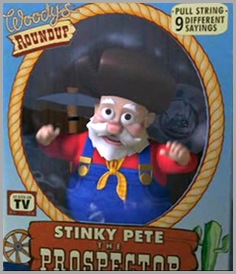Some thoughts on the nature of the European crisis, which I’m writing up for an opinion piece. Comments much appreciated
I used to blog about opera a fair bit here at CT, but I’ve tended to let that go over recent years, after all, I lack the competence of a proper music critic. Still, I would like to report that Saturday’s premiere of WNO’s production of Die Meistersinger, with Bryn Terfel as Hans Sachs, was the most stunning and energizing operatic performance I’ve ever attended. Started and 4, finished at 10, but those hours went awfully quickly. The music was wonderful, Terfel is an awesome presence on the stage, and the chorus – especially in the final act – was simply amazing. The staging, especially in Act 3, was also breathtaking. When you add in that the venue is probably the best one in the UK for opera, it all came together for a terrific evening capped by an energetic standing ovation from the audience. The production will be broadcast (a concert performance) as part of this year’s Proms (Radio 3 and BBC4) so if you are somewhere you can catch it, do so. If you can get hold of any tickets for the remaining performances in Cardiff or Birmingham, do so (and sell your most prized possessions to acquire them). Today’s papers have a couple of reviews: Andrew Clark in the FT and Andrew Clements in the Guardian . What would you have to do to get unqualified enthusiasm from those guys? (UPDATE: Rupert Christiansen in the Telegraph, a much better judged review.)
Haven’t seen the new one yet (it will be the four year old’s first movie in the theatre, so we are trying to figure out a family expedition, so that everyone can enjoy him enjoying it), but its arrival reminds me that I’ve been meaning for ages to post on how _Toy Story 2_ maps out the major themes of Ishiguro’s _Never Let Me Go._ They both are driven by the same basic idea – of highly intelligent, potentially autonomous creatures who define their happiness entirely in terms of the happiness of others. In _Never Let Me Go_, this makes the (liberal) reader quite queasy. In _Toy Story 2_, this is treated as an entirely happy and natural state of affairs. Perhaps it shouldn’t be – and that so many people take the social relations in _Toy Story 2_ for granted, suggests that NLMG‘s clones’ acceptance of (and even joy in) their status is less socially unrealistic than some of its critics think.
There’s an article to be written on this (perhaps taking Gene Wolfe’s chilly little short story, The War Beneath the Tree in along the way. In the meantime, from this perspective, Stinky Pete is perhaps the only character in _Toy Story 2_ who is genuinely free, even if he _is_ stuck in a box for most of the movie.
Update: Tom Houseman has similar thoughts.
